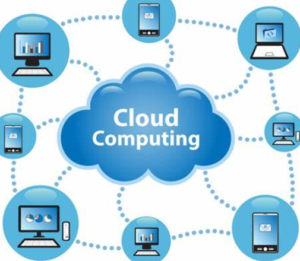The term cloud computing alludes to the possession of systems administration innovation furnished by an outsider when client realizes it. These resources are data storage (cloud Storage / blob) and computational power. Some key points to know about cloud computing: Pay-as-you-go pricing: Cloud compuRead more
The term cloud computing alludes to the possession of systems administration innovation furnished by an outsider when client realizes it. These resources are data storage (cloud Storage / blob) and computational power. Some key points to know about cloud computing:
- Pay-as-you-go pricing: Cloud computing offers on-demand access to resources like physical servers, virtual servers, networking capabilities as well as development tools and AI-powered analytics. You pay for usage only, which is less expensive comparably to traditional on-premises infrastructure.
- Fast and nimble: Enterprises can strive operational business activities to the cloud, departing from waiting weeks or months for IT answer back. Because of this agility development teams can make the most out of cloud native software and infrastructure.
- Scalability: You are not bounded by the purchasing a set amount of computing power with an cloud system so you can quickly and easily scale up your subscription if it is needed. Instantly scaling up & down Instead of buying the extra capacity that just sits there idle when your traffic dies out, you can scale both ways as and how Spikes / Dips relatable _traffic_folded_dimension. Cloud providers also have a global network, which enables you to distribute your applications around the world.
- Strategic: Companies can gain access to tools, such as Generative AI and Quantum Computing before anyone else through Cloud computing – which provides them an edge over competition.



AI is increasingly capable of automating a variety of tasks, particularly those that are repetitive, rule-based, and require limited creativity or complex decision-making. Some jobs that are more easily replaced by AI include: Data Entry and Processing: Routine tasks involving data input, extractionRead more
AI is increasingly capable of automating a variety of tasks, particularly those that are repetitive, rule-based, and require limited creativity or complex decision-making. Some jobs that are more easily replaced by AI include:
While these roles are susceptible to automation, it’s important to note that AI also creates new job opportunities, particularly in fields that require complex problem-solving, creativity, and emotional intelligence. Additionally, many jobs will evolve, with AI handling routine tasks and humans focusing on more strategic and interpersonal aspects.
See less